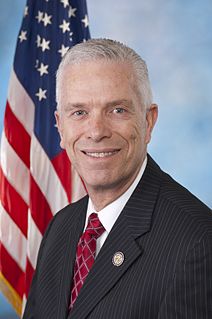A Quote by Christian Wiman
Sometimes God calls a person to unbelief in order that faith may take new forms.
Related Quotes
I have noticed that whenever a person gives up his belief in the Word of God because it requires that he should believe a good deal, his unbelief requires him to believe a great deal more. If there be any difficulties in the faith of Christ, they are not one-tenth as great as the absurdities in any system of unbelief which seeks to take its place.
The Bible never tells us to take a blind leap of faith into the darkness and hope that there's somebody out there. The Bible calls us to jump out of the darkness and into the light. That is not a blind leap. The faith that the New Testament calls us to is a faith rooted and grounded in something that God makes clear is the truth.
It’s not always easy to get over some of those bumps in the road, those disillusionments and disappointments. It’s going to take a strong will. Sometimes, it may take courage. Sometimes nothing but faith in God and say, I refuse to be trapped in the past. I’m not going to let the past destroy my future. I’m pressing on. I’m straining forward, knowing that God has great things in store for me.
We don't always possess faith in the sense of having a clear embodiment of something to hang on to. The relationship between the intellect and faith is a very curious one. Sometimes the intellect can point us to faith, sometimes the intellect can stand in the way of faith. Sometimes, as St John of the Cross points out, we have to darken or blind the intellect in order to have faith.
So let's set the record straight. Faith is not the opposite of reason. The opposite of faith is unbelief. And reason is not the opposite of faith. The opposite of reason is irrationality. Do some Christians have irrational faith? Sure. Do some skeptics have unreasonable unbelief? You bet. It works both ways.
The most interesting character to me is someone who is stuck in the no man's land between Belief and Unbelief, Faith and Faithlessness. I'm capitalizing like a German, but it doesn't matter whether it's faith in a person or in God, or belief in science or whatever, it's the desperate in-between state that makes for interesting dramatic tension.
Because the Christian God is not a lonely God, but rather a communion of three persons, faith leads human beings into the divine communion. One cannot, however, have a self-enclosed communion with the Triune God- a "foursome," as it were-- for the Christian God is not a private deity. Communion with this God is at once also communion with those others who have entrusted themselves in faith to the same God. Hence one and the same act of faith places a person into a new relationship both with God and with all others who stand in communion with God.






































